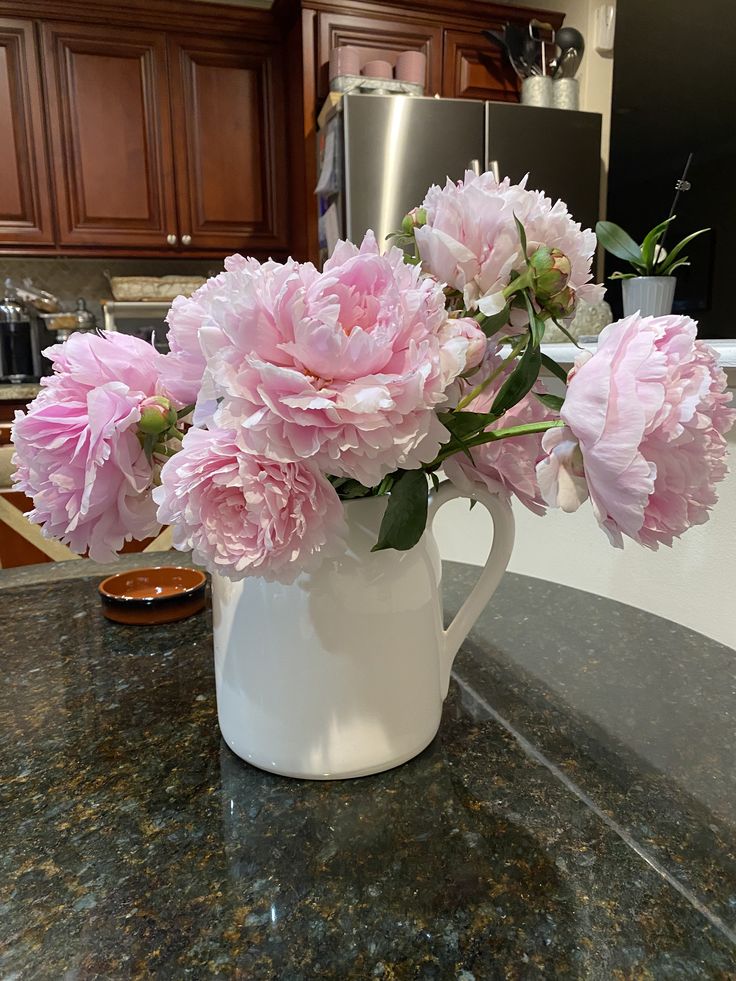Safeguarding Your Peony Garden: Organic Approaches to Disease Management
Keeping your peony garden free from diseases requires proactive measures and a commitment to organic gardening practices that promote plant health and resilience. By implementing natural methods and remedies, you can effectively manage common peony diseases without resorting to synthetic chemicals. Here are some organic approaches to disease management for your peony garden.









1. Proper Planting Practices
- Site Selection: Choose a well-drained location with good air circulation for planting your peonies. Avoid planting them in low-lying areas where water tends to collect, as this can promote the development of fungal diseases.
- Spacing: Plant peonies at the recommended spacing to allow for adequate air flow between plants, reducing the risk of fungal infections. Space them at least 2-3 feet apart to minimize overcrowding and encourage healthy growth.
2. Sanitation Measures
- Remove Diseased Plant Material: Regularly inspect your peonies for signs of disease, such as discolored or spotted foliage, distorted growth, or powdery mildew. Promptly remove and dispose of any affected plant material to prevent the spread of disease to healthy plants.
- Clean Garden Tools: Disinfect garden tools, such as pruners and shears, with rubbing alcohol or a bleach solution after each use, especially when pruning diseased plants. This helps prevent the transmission of pathogens between plants.
3. Organic Fungicidal Sprays
- Baking Soda Spray: Create a homemade fungicidal spray using baking soda to control powdery mildew, a common fungal disease affecting peonies. Mix 1 tablespoon of baking soda with 1 gallon of water and a few drops of liquid soap. Spray the solution onto affected plants every 7-10 days until symptoms improve.
- Neem Oil: Neem oil is an organic fungicide and insecticide that can help control fungal diseases such as botrytis blight and leaf spot on peonies. Dilute neem oil according to the manufacturer’s instructions and spray it onto affected plants as needed.
4. Soil Management
- Well-Drained Soil: Ensure your peonies are planted in well-drained soil to prevent waterlogging, which can promote root rot and other fungal diseases. Amend heavy clay soil with organic matter such as compost to improve drainage and soil structure.
- Mulching: Apply a layer of organic mulch, such as shredded bark or compost, around the base of peony plants to suppress weeds and maintain soil moisture. Avoid mulching too close to the plant stems to prevent moisture buildup and fungal growth.
5. Companion Planting
- Beneficial Companion Plants: Plant disease-resistant and pest-repelling companion plants near your peonies to enhance their natural defenses. Herbs such as basil, thyme, and oregano can deter pests and promote overall plant health in the garden.
- Flowering Perennials: Include flowering perennials such as bee balm, echinacea, and coneflower in your peony garden to attract beneficial insects such as ladybugs and lacewings, which feed on pest insects and help keep populations in check.
Conclusion
Managing diseases in your peony garden using organic methods promotes a healthy and sustainable gardening environment while minimizing the use of synthetic chemicals. By implementing proper planting practices, sanitation measures, organic fungicidal sprays, soil management techniques, and companion planting strategies, you can effectively control common peony diseases and ensure your garden thrives with vibrant and disease-free blooms.
FAQs (Frequently Asked Questions)
- What are some common diseases that affect peonies?
- Common diseases that affect peonies include powdery mildew, botrytis blight, leaf spot, and root rot. These fungal diseases can cause foliage discoloration, spotting, distortion, and overall decline in plant health if left untreated.
- How often should I apply organic fungicidal sprays to my peonies?
- Organic fungicidal sprays should be applied preventatively every 7-10 days during the growing season, especially during periods of high humidity or wet weather when fungal diseases are more prevalent. Monitor your plants regularly for signs of disease and adjust your spraying schedule as needed.
- Can I use compost tea to prevent peony diseases?
- Yes, compost tea can be used as a foliar spray to help prevent peony diseases and promote overall plant health. Compost tea contains beneficial microorganisms and nutrients that support soil biology and enhance plant immunity. Apply compost tea to the foliage of your peonies every 2-4 weeks during the growing season for best results.
- Are there any natural predators or beneficial insects that can help control peony pests and diseases?
- Yes, beneficial insects such as ladybugs, lacewings, and predatory mites feed on pest insects that affect peonies, such as aphids, thrips, and spider mites. Encourage the presence of these beneficial insects in your garden by planting flowering plants that attract them and avoiding the use of broad-spectrum pesticides that harm beneficial insect populations.